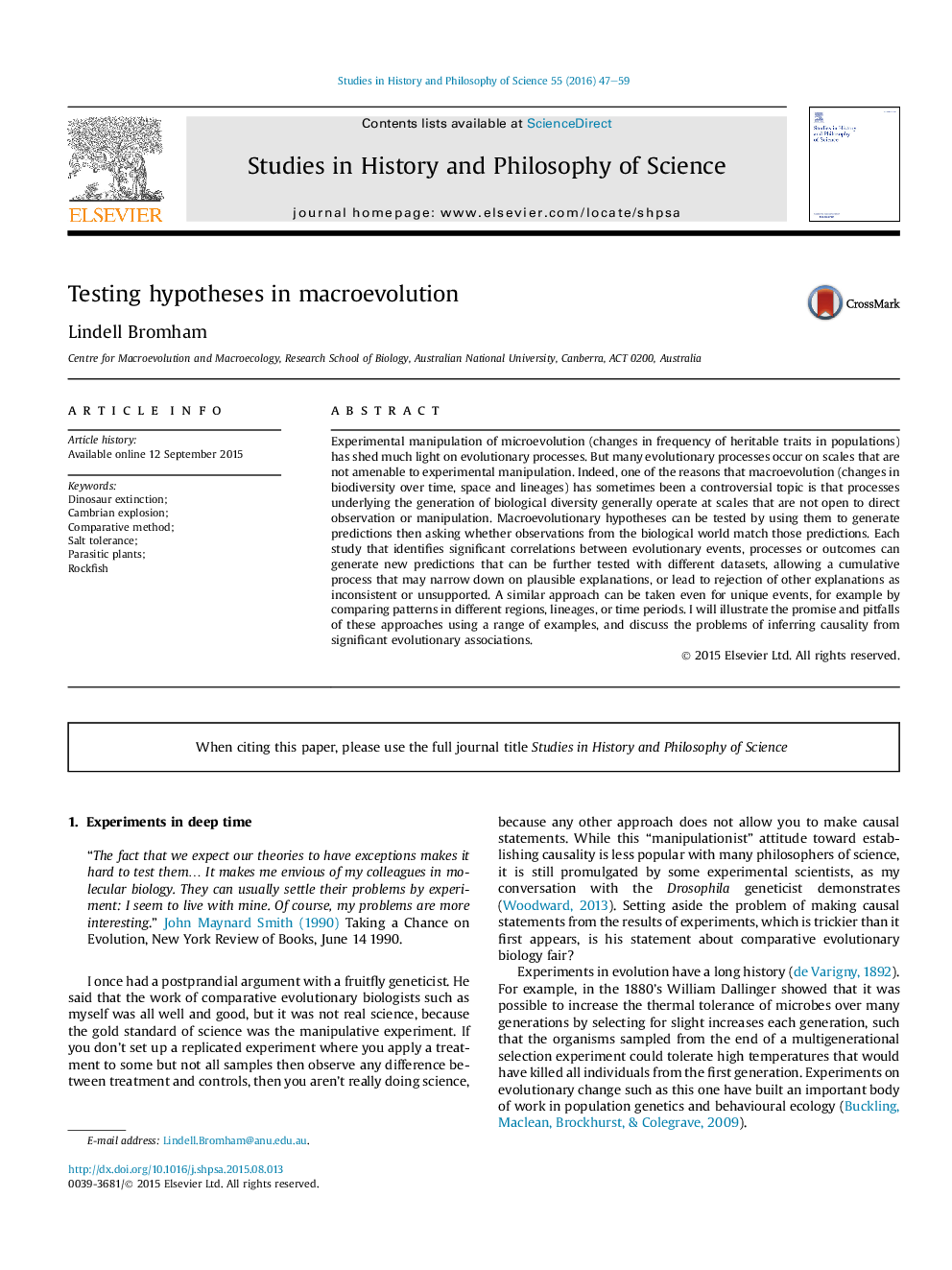| کد مقاله | کد نشریه | سال انتشار | مقاله انگلیسی | نسخه تمام متن |
|---|---|---|---|---|
| 1160396 | 1490327 | 2016 | 13 صفحه PDF | دانلود رایگان |
• Macroevolutionary processes cannot be directly observed or manipulated.
• Tests of macroevolutionary hypotheses resemble classical experimental design.
• Most tests weigh plausibility of explanations rather than provide decisive answers.
Experimental manipulation of microevolution (changes in frequency of heritable traits in populations) has shed much light on evolutionary processes. But many evolutionary processes occur on scales that are not amenable to experimental manipulation. Indeed, one of the reasons that macroevolution (changes in biodiversity over time, space and lineages) has sometimes been a controversial topic is that processes underlying the generation of biological diversity generally operate at scales that are not open to direct observation or manipulation. Macroevolutionary hypotheses can be tested by using them to generate predictions then asking whether observations from the biological world match those predictions. Each study that identifies significant correlations between evolutionary events, processes or outcomes can generate new predictions that can be further tested with different datasets, allowing a cumulative process that may narrow down on plausible explanations, or lead to rejection of other explanations as inconsistent or unsupported. A similar approach can be taken even for unique events, for example by comparing patterns in different regions, lineages, or time periods. I will illustrate the promise and pitfalls of these approaches using a range of examples, and discuss the problems of inferring causality from significant evolutionary associations.
Journal: Studies in History and Philosophy of Science Part A - Volume 55, February 2016, Pages 47–59
